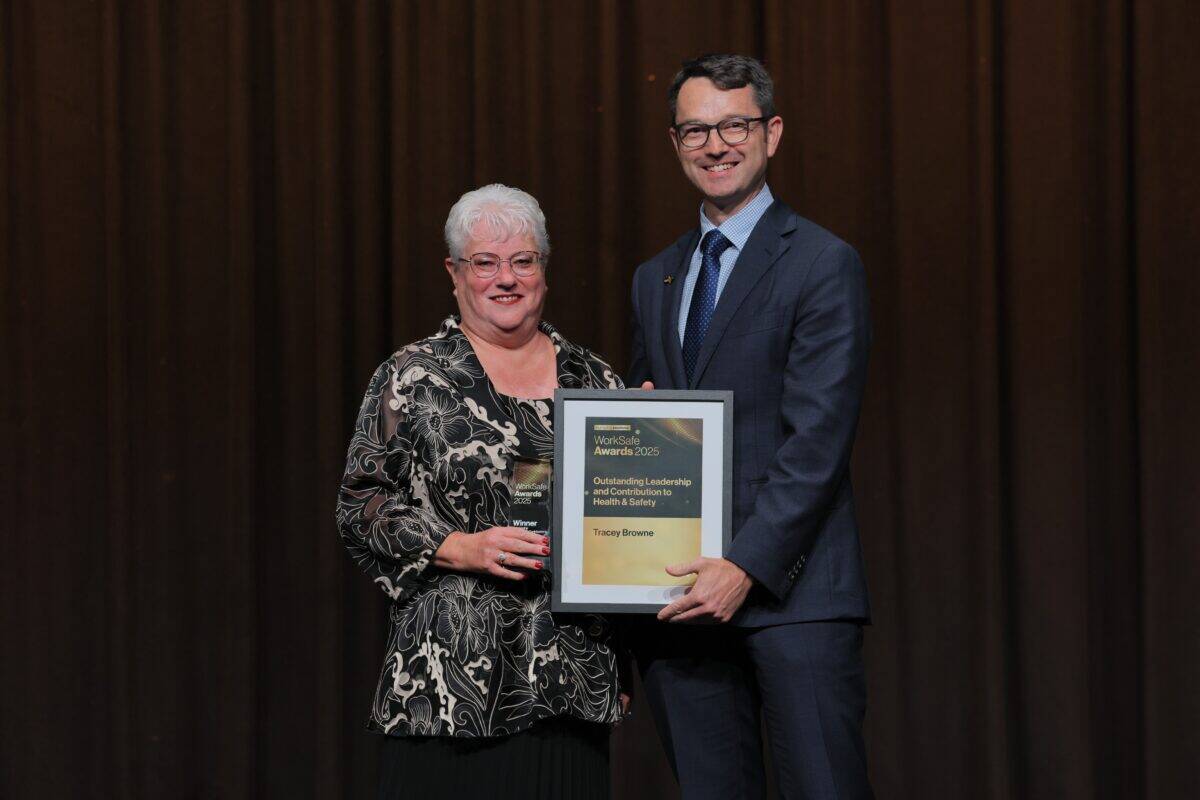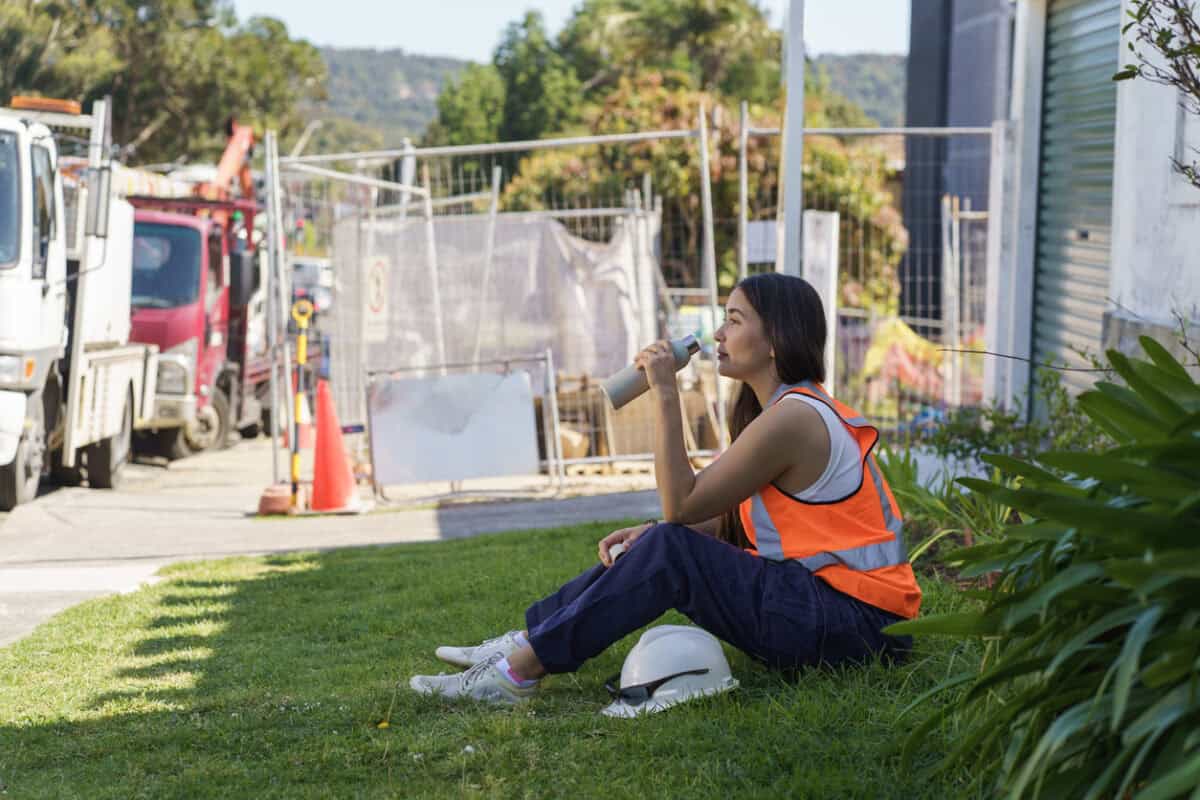Occupational health and safety in Australia continues to have a low political and commercial profile, but that does not deny that we have significant OHS contributors. At a recent awards ceremony, WorkSafe Victoria recognised Tracey Browne (pictured above) for her contribution to OHS.
But other speeches raised other interesting OHS issues, especially regarding farm safety.







